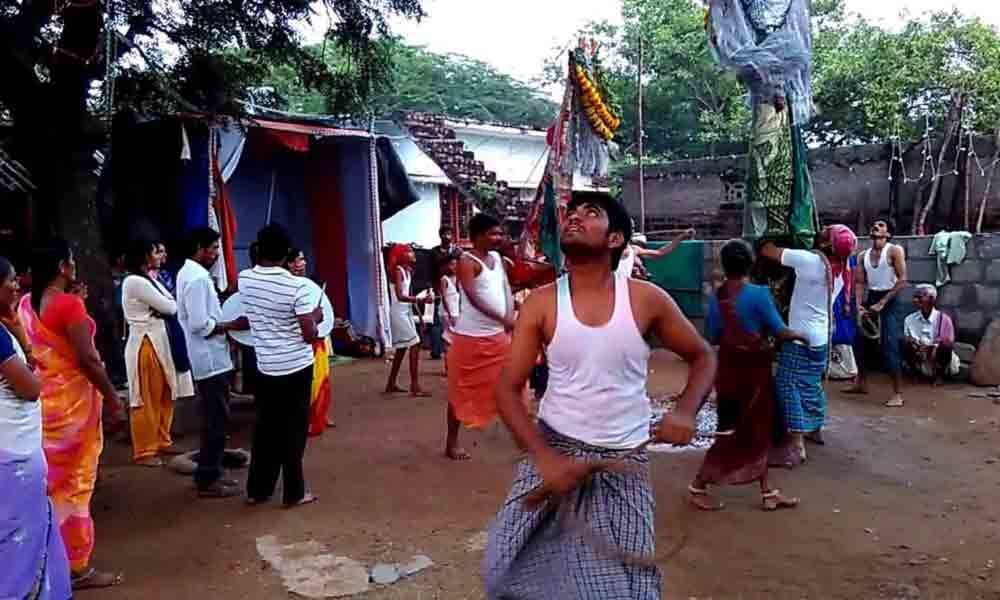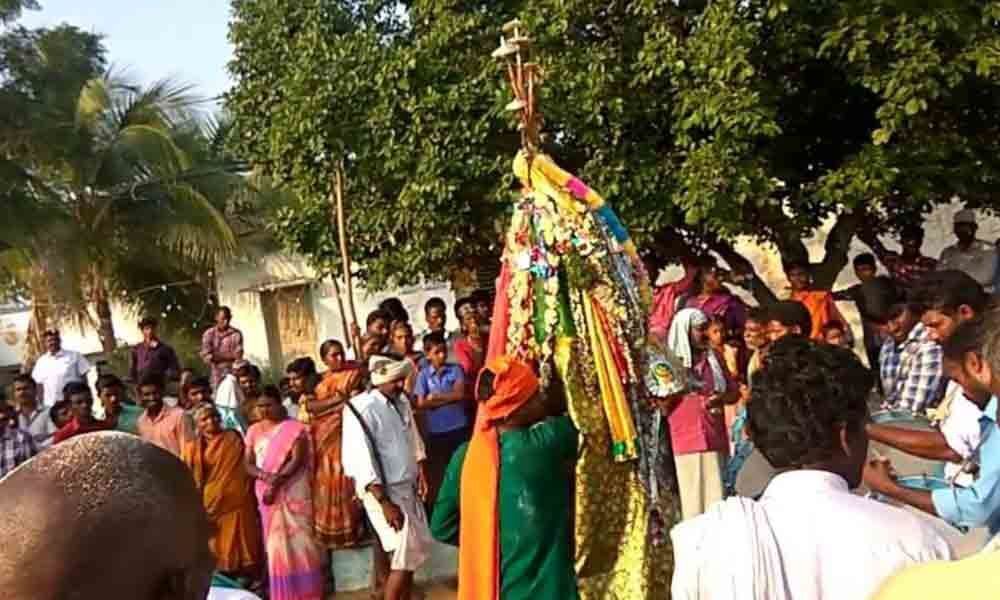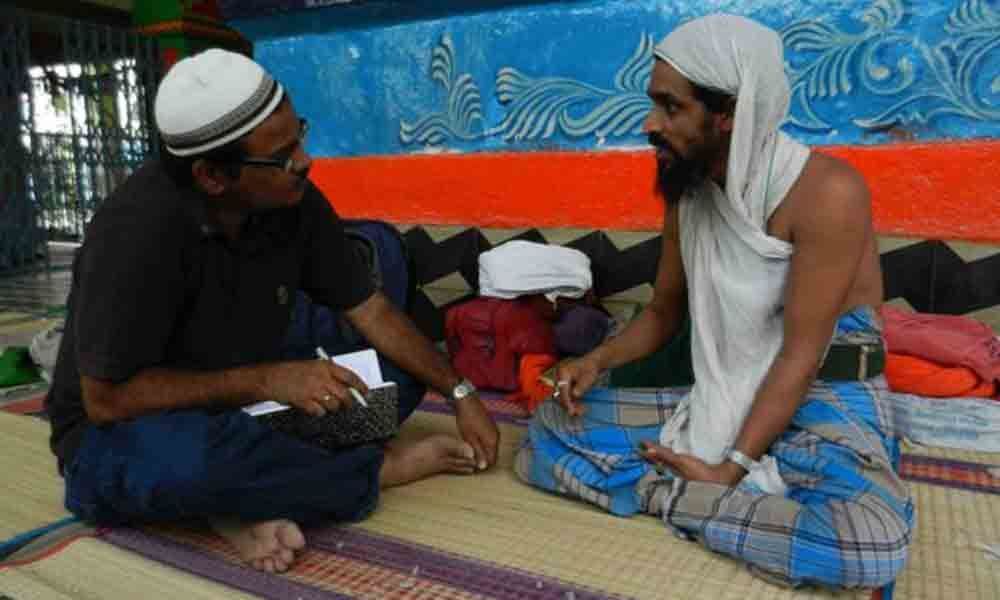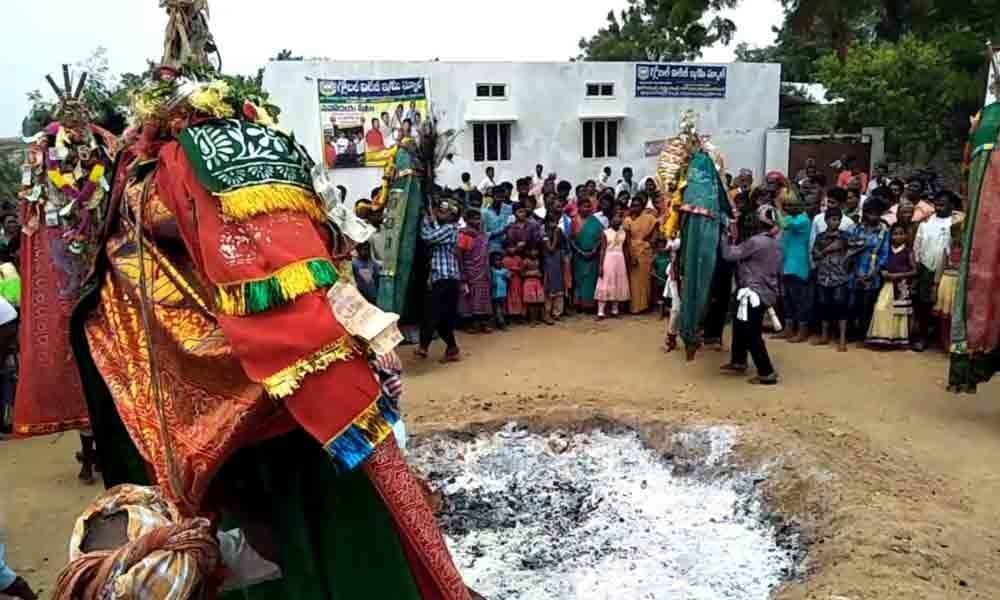Live
- Twelve people injured by turbulence on Doha to Dublin flight
- UN agency fears 670 dead after Papua New Guinea landslide
- Licence expired, doctors not qualified to treat newborn: Delhi Police on hospital fire
- Largest container ship ever to arrive in India docks at Adani's Mundra Port
- AIADMK raps TN govt for not resuming free laptops for students scheme
- PM Modi applauds Preneet Kaur's tireless service to Punjab
- IPL 2024: Powerplay in both innings is going to be what shapes the game, says Mitchell Starc
- Sree Padmanabha Swamy Temple priest backs PM Modi's divine assertion
- IPL 2024: Hyderabad elect to bat first in the title clash against Kolkata
- Bring change in country by electing Cong-INDIA govt, says Priyanka Gandhi in Chandigarh
Just In
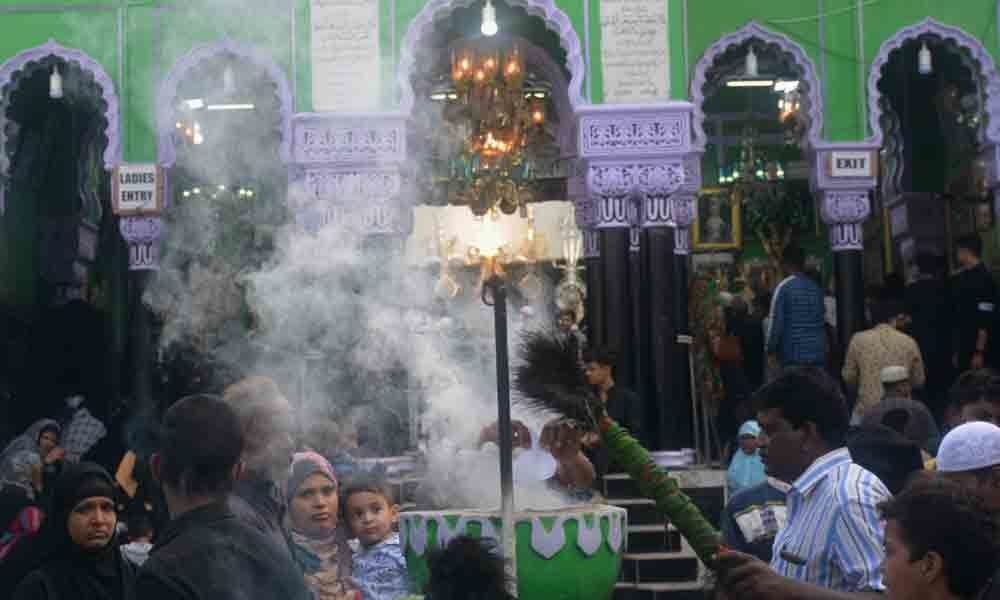
The Islamic calendar is particular about its first month- Muharram. It is one of the four sacred months for Muslims. Muharram means ‘forbidden’ – haram – ‘sinful’. It is a commemoration of the tragic deaths – also known as the martyrdom
Karbala is just here, babu gaaru. Just outside our village!"
When a 70-year-old Mallayya uttered these words, I was extremely sceptic as the persistent mind of a normal historian of religions was still stubborn with all its chronology from the history of Islam. However, there was also a budding ethnographer who would love to hear and care for what 'ordinary' people would talk! I asked him repeatedly, ''How do you know it's Karbala? What do you mean by Karbala anyway?"
It is the year 2006. The month of Muharram had just started, and I was travelling endlessly, almost visiting one Sufi shrine for two days. When I arrived at the Abbas Ali Dargah in a village in Karim Nagar district, I met Mallayya and his team, who routinely sing and perform for the public event of Muharram, locally called 'Peerla Pandga' (The Festival of Pirs). While the very usage of the local term 'The Festival of Pirs' for Muharram challenges my academic mindset, the narratives that I heard for the rest of the month of Muharram in and around several villages and urban sites in the Telangana State really was an unsettling experience for me.
It took me a while to comprehend that Mallayya was indeed talking about the same Karbala, which is some thousands of miles away from his village. Karbala is a city in Central Iraq located about a hundred miles from Baghdad and historically known for its Battle of Karbala in 680 CE when the grandson of the Prophet Muhammad was martyred. The entire controversy about the legacy of the prophet then also led to a split in Islam and eventually, the battlefield of Karbala became a sacred site for the Shia Muslims. The site itself remains a symbol of the sacrifices made by the family of the Prophet to protect the Muslim community and its homeland.
Then, if Mallayya is talking about the same Karbala which he locates in his remote village in Telangana, how do we understand this history? What makes Mallayya own this Islamic site? When I asked him and his team the same questions, they just said: "Babu gaaru, the entire family of the Prophet belongs to our village, and here's where his grandson martyred. That's all we know!"
Then, I started realising that he knows more than that simple family history of the Prophet. I watched him and his team narrate the entire story in 10 episodes for the 10 days of Muharram. Throughout the narrative performance, we barely hear about Iraq or some other Muslim country. Not only for the performers such as Mallayya, all the villagers, despite their religious/caste differences, but the family of the Prophet also lived with them and sacrificed their lives for their village. So, that way every geographical location from the history of Islam actually, as they proudly say, "Right here, here," pointing at different locations in the village. Then, that narrative knowledge leads us to ask "How many Karbalas are there? And then, how many Prophets are there and then where exactly they lived?"
The Islamic calendar is particular about its first month- Muharram. It is one of the four sacred months for Muslims. Muharram means 'forbidden' – haram – 'sinful'. Since it is a commemoration of the tragic death – also known as the martyrdom ('Shahadat' in Islam, and 'Amaratwam' in Telugu), any celebrations are forbidden in this month and devotees are supposed to remember the martyrdom of Imam Husain, the grandson of the Prophet. Many of us are familiar with the blood rituals such as flagellation or 'janjeer maatam' (beating with chains) in the old city of Hyderabad, or other Shia-populated cities in India. This blood ritual is an expression to share the solidarity with the martyrdom of Hussain and his group in the Battle of Karbala. However, these blood rituals in an urban site are replaced by water rituals in a rural context. Pouring the water during the processions and then immersing the ritual standards known as 'pirs' is very typical ritual mostly confined to rural sites.
Within the local culture in Telangana, Hussain is popularly known as Usanna and his brother Hassan is known as Asanna. Local folk performers in the Telugu-speaking States narrate the story of Asanna and Usanna for the 10 days of Muharram. The last day of this commemoration is known as 'Jala Samadhi' (Immersing in water) will be performed at the local symbolic site called Karbala.
The long narrative of Asanna and Usanna is sung and performed during the 10 days of Muharram, in fact, narrates the entire history of Karbala. However, it's all translated and adapted to the local history that blends 'sthala purana' (place legend) and 'kula purana' (caste narratives) of the village. Many performers own this narrative to the extent that they totally deny the 'actual' chronology of the history of Islam. For them, it's the story of their village and their community as they keep emphasising that the entire family of the Prophet Mohammad lived with them as their neighbours and martyred their lives for protecting their village. Most rituals and stories are the recollections of this 'historical memory' of the village and its community. When I repeatedly used the word 'katha' (story), Mallayya and his team openly challenged me and said 'no…not katha, it's taarikhu, the history'. And stress on the Persian term 'taarikhu' was their own usage.
My long-term association with these performers in the Telugu-speaking States taught me several lessons – one being that story of pluralism that we keep forgetting trapped in our colonial and postcolonial political climate that hegemonically separates the community as 'Hindu' and 'Muslim'. The entire idiom of contemporary politics so overly dominated by this discourse and we now barely recognise how ordinary people such as Mallayya think and perceive the everyday life surrounding them. Of course, now the long shadow of communal politics and hate speech is even more 'powerful' than the previous days. However, today I remember Mallayya, every moment for his unforgettable words.
He said: "We are here to share love, not the hatred. We tell the story of the martyrdom to realise the power of that love that the entire family of the Prophet shared with the world. When we visit their shrines, we get the reminder on a daily basis that – love always wins, not the hate!

© 2024 Hyderabad Media House Limited/The Hans India. All rights reserved. Powered by hocalwire.com





